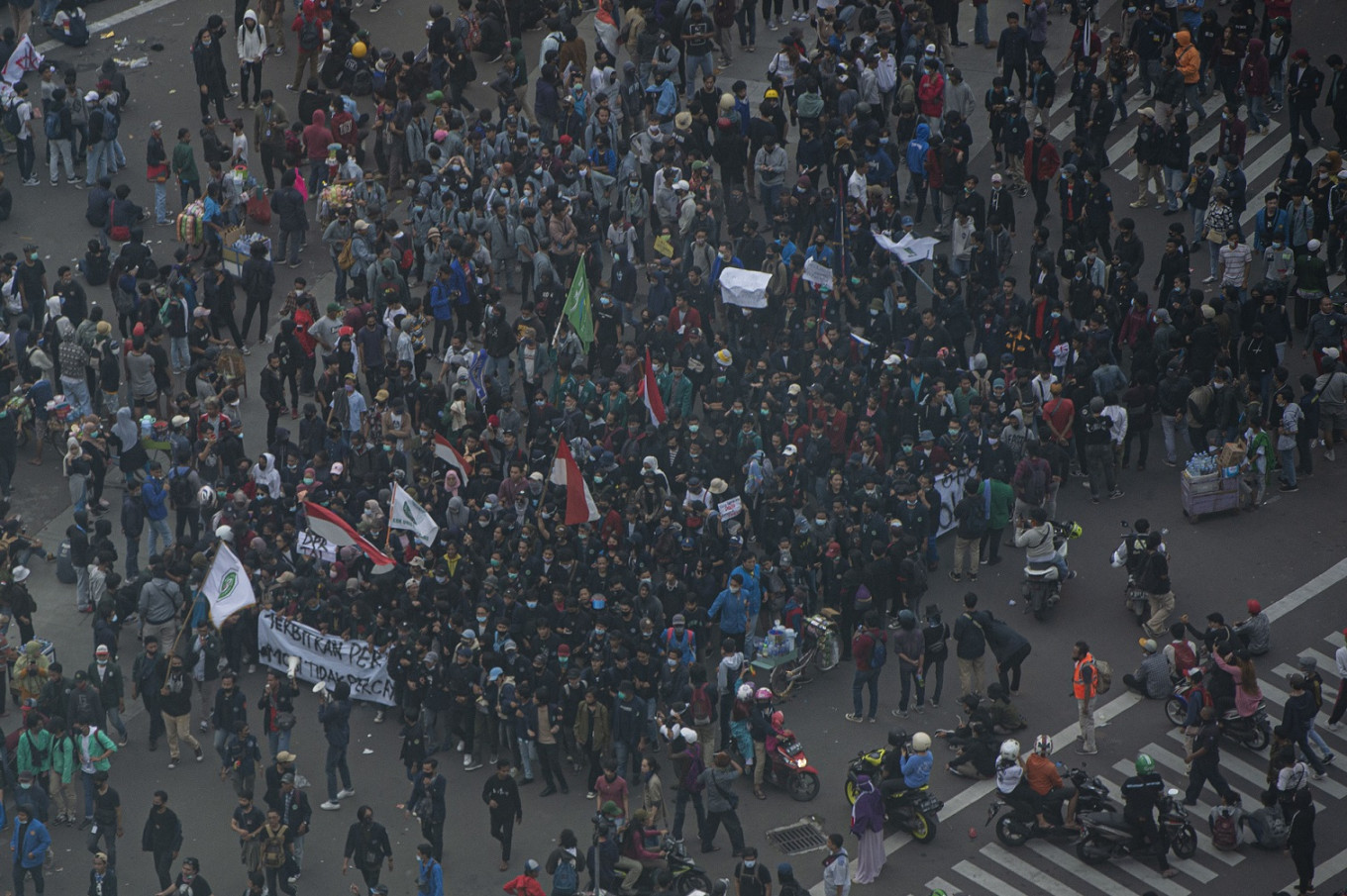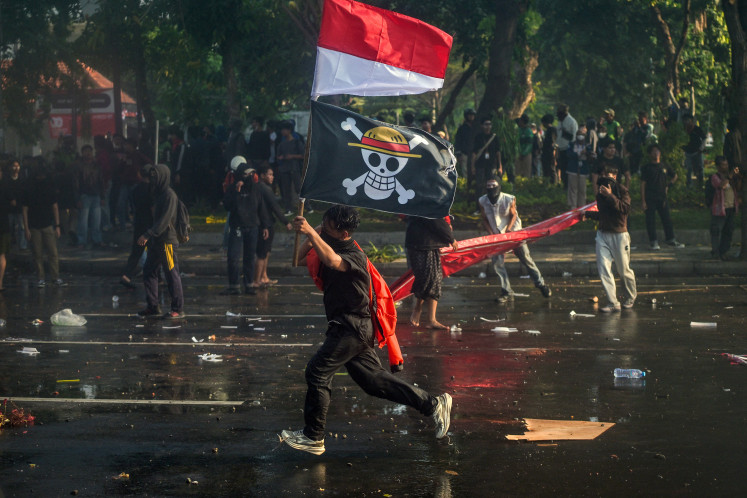Popular Reads
Top Results
Can't find what you're looking for?
View all search resultsPopular Reads
Top Results
Can't find what you're looking for?
View all search resultsDo Indonesian trade unions address the future of work?
Why were the labor unions left behind? Because they neither have significant membership nor unity in promoting its concerns and standpoints.
Change text size
Gift Premium Articles
to Anyone
T
he future of work is being driven by globalization and technological changes with implications for human resources and working conditions. Global commitment among the government, employers and worker organizations highlights the need for an inclusive human-centered approach – involving all stakeholders – to address any adverse impacts on the future of work, thereby securing efficiency and productivity.
However, that commitment, both at the global and regional levels, does not seem to be reflected in Indonesia’s Job Creation Law, which was drafted without proper involvement of the trade unions.
The law introduces labor market flexibility in anticipation of new forms of working in the global supply chain amid technological change, but is perceived by the trade union members as having negative consequences for their job security and working conditions.
The overall key points of the law fully accommodates employers’ points of view, which indicates the unions’ weak bargaining position in policy formulation and program intervention.
The authoritative status of the law itself is unclear as it is considered illegal due to its flawed drafting process, and also requires further revision by the government within two years, as far as the Constitutional Court’s decision last November is concerned.
Why were the labor unions left behind? Because they neither have significant membership nor unity in promoting their concerns and standpoints.
The trade unions have to find solutions to declining membership and fragmentation, which is also a global phenomenon.
Unless the Indonesian trade unions increase their membership through better organization, training, and connecting with new employees and those digital platform-based workers, they will not be able to play a key role in policy formulation.
The trade unions must pay attention to those transitioning from education and training to the workplace, and accept those still in apprenticeships as a potential source of new membership.
A very limited number of unions have shifted their focus to advocating and negotiating for more technical and vocational training for their members. This includes promoting digital skills and distance learning so that those in rural areas have equal access to quality education.
For Indonesian trade unions to have a say in specific issues, including the future of work, technical exercise and discussion matter.
While most trade unions are against the Job Creation Law, they are more fragmented when it comes to complex issues such as unemployment benefits in future jobs bills. Do unions have to reject future jobs bills out of hand or should they maximize their ability to negotiate through dialogue? Do trade union leaders consult their members, or merely make decisions from the top?
Another challenge is to provide positive externality to the organization and its members in the medium and long term, rather than only short term. For example, trade union demand for withdrawing benefits before reaching retirement age simply creates the potential for more workers retiring poor.
Improving the trade union movement requires capacity building and a robust and integrated strategy, in addition to networking with other potential key stakeholders. A coherent and robust strategy formulated on research and empirical evidence is crucial for the bargaining process in formulating policy and intervention. This includes understanding the global context, international labor standards, good practices and lessons learned.
It seems Indonesian union members are not yet ready to face complex issues including the future of work. This is due to a lack of organizational strategy and capacity, in addition to their inability to network to build a common platform with potential stakeholders.
It is crucial for trade unions to consider alliances, if not mergers, with other unions to allow them to speak with one voice when representing workers’ concerns and aspirations. This would make it easier for governments and employers to meet and come out with a joint agreement with trade unions.
As it is now, from the government’s point of view, trade unions are seen as less important stakeholders, as they do not have an inclusive and equal platform and mechanism for social dialogue to come up with common concerns and agreement.
Indonesia’s trade unions also need to improve their capacity to understand the current global, regional and national situation in dealing with relevant labor and employment issues. It is crucial for them to find a new way to organize their workers to be in line with Industry 4.0.
Technology development has been accelerated by the COVID-19 pandemic and, therefore, has generated new ways of work and the “new normal”. Trade unions should be more strategic in pursuing their goals and objectives, as well as the well-being of society at large, through social dialogue when it comes to policy formulation.
As per their previous successful experiences in promoting universal health and employment social insurance, trade unions must revisit their networks and create strategic partners. There is no other option in addressing the future of work.
International Labor Day could be an ideal start for the transformation.
***
Tauvik M. Soeherman is labor and employment expert living in Jakarta. Indrasari Tjandraningsih is a senior researcher at AKATIGA, Centre for Social Analysis, Bandung.











